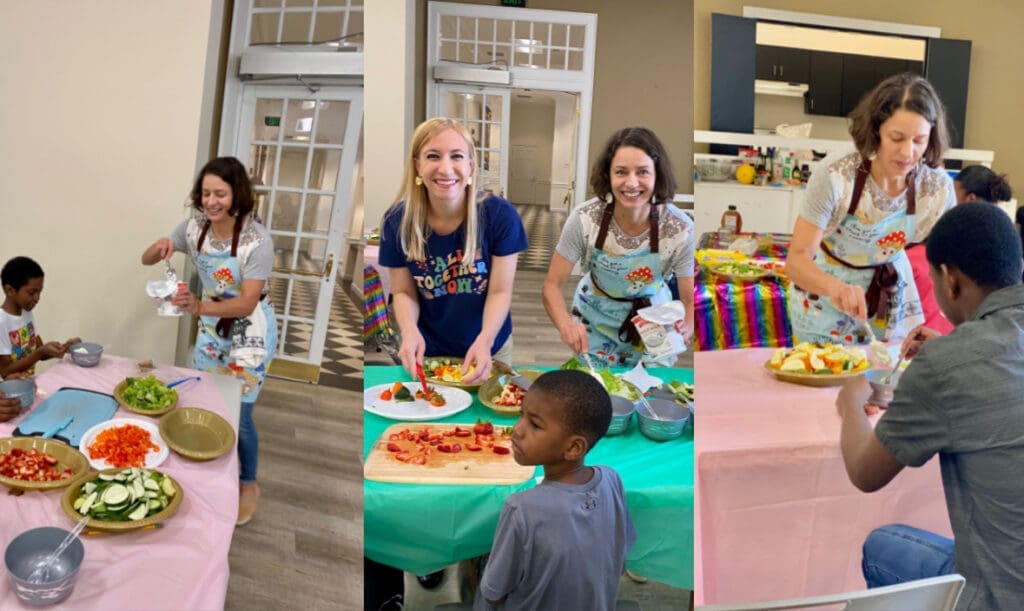Stay Informed: Latest News from Across Georgia
Summer is for more than rest—it’s for rising. In kitchens, gardens, books, and trees, let children gather the skills that shape a resilient life.
I learned to cook during a dictatorship.
Not from glossy cookbooks or YouTube tutorials, but in a cramped kitchen in Ceaușescu’s Romania—where sugar was rationed, oil was precious, and hot water arrived once a week, if at all.
We made do. We made it stretch. We preserved everything we could. Romanian food—especially in the countryside—was seasonal and deeply practical. Mămăligă (cornmeal porridge) stretched every meal. Cabbage and root vegetables became soups and rolls. Fruits were jarred and shelved. Pickling was survival.
The kitchen was where we gathered—grandma, aunties, and us eldest girl-grandchildren, sleeves rolled and ears open. As we stirred, chopped, kneaded, and scraped, we absorbed the stories the women told: tales of hardship, humor, and hard-won wisdom, passed down like heirloom recipes. We learned food, yes—but also family, morality, and resilience.
Outside, the boys gathered bugs off potatoes, picked fruit, and chased chickens. We gathered lessons in the kitchen—and then washed towering piles of metal bowls in water we had to heat by hand.
I longed to be elsewhere. Tucked into the crook of the wild cherry tree, fingers sticky with juice, a book balanced on my knees. Or hidden inside the tall glass bookcase in my grandparents’ home, folded into its wooden frame, reading in the hush of the afternoon. My grandfather would find me there, smile, and gently close the door behind him. He knew that stories fed a different kind of hunger.
Years later, the public library in my new American home became my sanctuary. With a novel in one hand and a little dictionary in the other, I taught myself English—page by page. Books have always been my refuge. They helped me adapt—and dream.
At the table, my grandfather gave us math drills. He’d peer over our shoulders, scanning our work. If we veered off course, he’d tap us gently on the head: cap sec— “dry head.” I didn’t want to be a dry head. I wanted to be sharp. I wanted to make him proud.
And when we succeeded—whether in solving a problem or perfecting a sauce—there was reward: the tart-sweet taste of last summer’s sour cherry preserves, or an afternoon snack of dark bread, bacon lard, salt, and onion. Simple food. But sacred.
Sometimes we walked miles to fetch fresh goat milk from a neighbor. We didn’t mind. The path led past a mulberry tree so heavy with fruit, we’d climb its limbs and eat until our fingers stained purple. The journey was as nourishing as the milk.
Those early lessons stayed with me. In high school, I tutored classmates in math. During summers, I worked at a bagel shop—making sandwiches, wiping floors, and scrubbing bathrooms. I was never too proud to do honest work. After college, when I learned that archaeology wasn’t a lucrative career path, I worked in restaurants and built a small catering business—shaped by the skills I’d learned at my grandmother’s elbow, with her wooden spoon in my hand.
Now, I pass those skills on. Every summer, I teach free cooking classes to kids at the public library—how to cook with curiosity, how to turn whatever’s on hand into something nourishing, how to see food not just as fuel but as connection.
Because these are life skills. And life skills are survival skills.
In a world that keeps shifting, kids don’t just need apps. They need tools. Let them cook. Let them measure and multiply. Let them scrub pots, peel onions, and taste the jam they helped preserve. Let them gather not just fruit—but stories, memories, and capability. Let them lose themselves in library shelves and wild cherry trees.
Let them contribute. Let them belong.
These aren’t burdens, they’re blueprints. What we pour into our children today—be it flour or story, Pythagorean formula or fable—shapes their strength tomorrow.
Let them read in trees. But also, let them work in kitchens.
One day, those “chores” might just carry them through.
About the Author:
Nora Borcea Pullen is a Fayetteville-based wellness entrepreneur and community advocate. Born in Romania under a communist dictatorship, she came to the U.S. as a teenager and built a life rooted in resilience, education, and service. Through her wellness programs, academic tutoring, cooking classes, and public speaking, she empowers others—especially the next generation—to live healthier, more capable lives. She teaches free children’s cooking classes each summer at the Fayette County Public Library and writes about civic engagement, self-reliance, and the lessons that inspire stronger, more connected communities.
Read the full article on the original site


